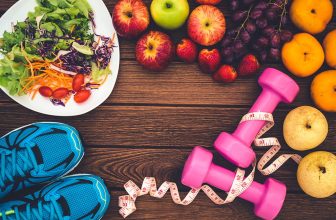Embarking on a weight loss journey is a personal and often challenging experience. There will be moments of triumph and pride, but also periods of frustration when you feel like your hard work isn’t paying off. While plateaus are a normal part of the process, it’s possible that some of your habits are actually slowing your progress.

Here are 10 things you should stop doing to get back on track and achieve your weight loss goals.
1. Don’t Fixate on the Scale
The scale can be a useful tool, but it’s not the only—or even the best—measure of success. Your weight can fluctuate by several pounds in a single day due to factors like hormonal changes, fluid retention, or undigested food. Instead of obsessing over this single number, try these alternative methods for tracking progress:
- Take body measurements: Use a tape measure to track changes in your arms, chest, waist, hips, and thighs.
- Pay attention to your clothes: Notice how your favorite pair of jeans or shirt fits. Clothes that feel looser are a great sign of progress.
- Take monthly photos: Progress photos can reveal changes that the scale might not, offering a powerful visual reminder of your hard work.
2. Avoid Eating Too Little
While a calorie deficit is crucial for weight loss, drastically cutting your caloric intake can be counterproductive. Extreme diets can slow down your metabolism and lead to muscle loss, making it much harder to lose weight in the long run.
The ideal number of calories you need is unique to your body and lifestyle. Consider consulting a nutritionist to create a balanced plan tailored to you. Also, be mindful of your macronutrients—making sure you get the right balance of protein, fats, and carbohydrates is key to nourishing your body while you lose weight.
3. Stop Eating Too Frequently
The old advice about eating small, frequent meals throughout the day may actually be sabotaging your goals by adding unnecessary calories to your diet. Instead, focus on listening to your body’s natural hunger cues and only eat when you’re truly hungry. If you feel like snacking between meals, try drinking a large glass of ice water to satisfy that craving instead.
4. Be Wary of “Diet” Foods
Don’t be fooled by clever marketing. Many foods labeled as “diet,” “low-fat,” or “healthy” can be surprisingly unhelpful for weight loss. These products often have added sugars to improve their taste, which can lead to weight gain. Your best bet is to stick to whole, unprocessed foods like fresh fruits, vegetables, lean meats, nuts, and seeds, and to limit packaged goods whenever possible.
5. Start Measuring Your Portions
If you’re not measuring your food, your calorie estimates are likely inaccurate. Studies have shown that people often consume far more calories than they think they do—sometimes up to twice as many! To stay on track, read the nutrition labels on every food item and measure your portions carefully. Keeping a food journal where you log everything you eat and drink can also help you accurately track your intake.
6. Make Time for the Gym
Physical activity is a non-negotiable part of a successful weight loss strategy. When you lose weight, you inevitably lose some muscle mass along with fat. But it’s your lean muscle that helps your body burn calories all day long. A balanced routine that includes both cardiovascular exercise and strength training is essential for maintaining this calorie-burning muscle.
7. Find a Healthy Exercise Balance
Over-exercising can be just as harmful as not exercising enough. An excessive workout schedule is unsustainable and can increase stress levels, which in turn can impair hormones that regulate stress. Unchecked stress often leads to overeating and can completely derail your progress. Working with a personal trainer, even for a few sessions, can help you develop a healthy, sustainable exercise plan.
8. Don’t Overestimate Calories Burned
While exercise does boost your metabolism, it's easy to overestimate how many calories you’re actually burning. If you think you burned 600-800 calories when the real number is closer to 200-300, you might be more likely to overeat after your workout, undoing all your hard work.
9. Don’t Limit Your Protein Intake
Whether intentional or not, many people on a weight loss journey don’t eat enough protein. Eating protein-rich foods can significantly reduce your appetite, increase feelings of fullness, boost your metabolism, and help preserve muscle mass. Make it a point to include a high-protein source in every meal.
10. Build a Support System
You don't have to do this alone. Studies show that people who have a partner or a support system tend to lose significantly more weight than those who go it alone. Having someone to hold you accountable—whether it’s a friend, family member, or a professional—can be one of your biggest motivators. Likewise, joining a weight loss support group can help you navigate the emotional and psychological aspects of your journey.






